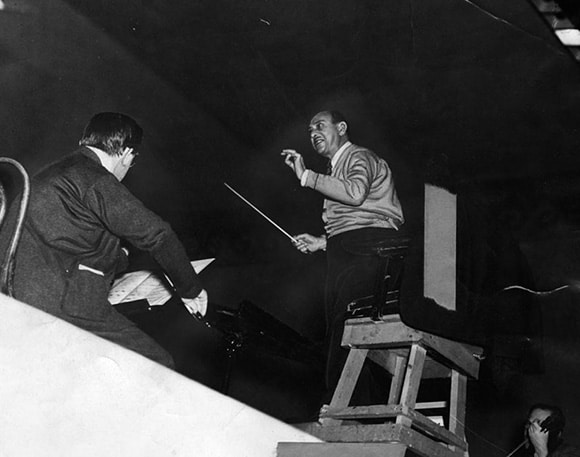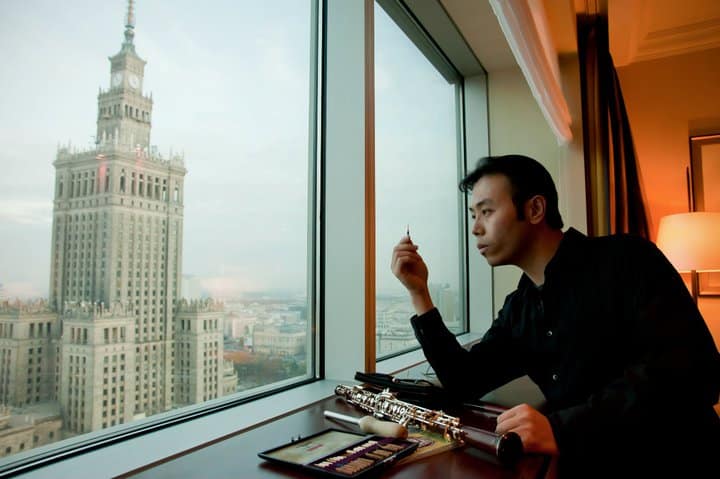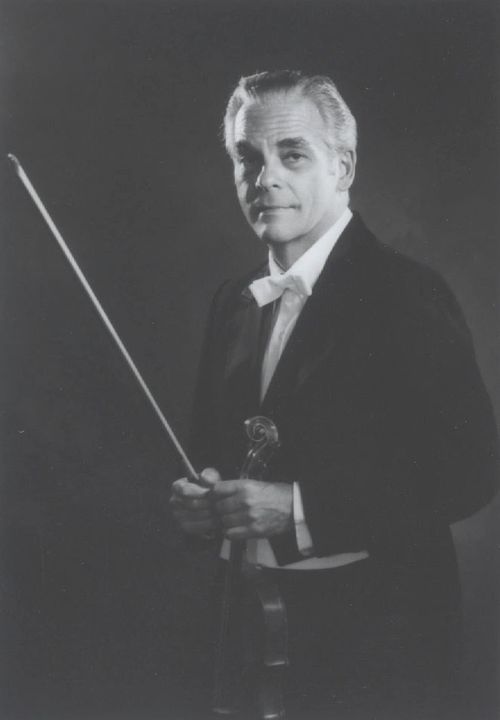Concertgebouw to sing first Gurrelieder since 1921
Orchestraspress release:
On 1, 2 and 4 February, Riccardo Chailly will conduct the Royal Concertgebouw Orchestra, three choirs and six vocal soloists in Arnold Schönberg’s Gurre-Lieder. Because of its huge line-up, … the orchestra hasn’t performed the Gurre-Lieder in its entirety since the Dutch premiere under the baton of the composer on 19 and 20 March 1921.






A little surprising given that Gurrelieder was an early recording of Chailly (with DSO Berlin?). You’d think in nearly 20 years at the Concertgebouw they would have done it.
I hope that they will broadcast the concert it was impossible to watch the last concerts Chailly did in Amsterdam as guest conductor and honorary musical director.
Someone will have to remind me – I am sure I heard Gurrelieder back in the ’60’s – I had thought LIVE, as well as on the radio. (??) Certainly, it’s a rare find, but I seem to remember Alvar Lidell (a memorable BBC newsreader of the day) delivering the sprechtstimme with aching beauty. Joint BBC Symphony Orchestra and BBC Northern Symphony Orchestra? George Hurst? Perhaps someone could fill in the gaps for me….. Of course, I doubt whether today’s audiences are much acquainted with Schoenberg’s music, and the majority would not know that his music started from such sumptuous sounds.
https://genome.ch.bbc.co.uk/5e5a48922b504fa79d3a1cf26348d37a
This 1966 BBC performance featured three Australian soloists: Sylvia Fisher, Kenneth Neate and John Lanigan. Ms. Fisher would have been 56 in that year — which was five years before she created the role of Miss Wingrave in Britten’s OWEN WINGRAVE.
Thank you so much, Jon, for those details.
There have been numerous UK performances of Gurrelieder in recent years. Rattle at the Proms. Gardner at the LPO. Elder in Manchester. Salonen with the Philharmonia. Given its size, it’s in no sense a rarity. I don’t know why they have a problem with it in the Netherlands.
The Netherlands doesn’t have a problem with it. The National Opera staged the piece back in 2014 and revived the production in 2018. The Rotterdam Philharmonic performed it in 2011, and I’m sure there have been other performances in the country. The Concertgebouw orchestra hasn’t performed the work in it’s entirety since they gave the Dutch premiere with Schönberg conducting. It’s surprising I must admit, though it’s a costly work to perform. Good to see they are performing it again after a gap of more than 100 years!
The first concert of the Amsterdam Mahler Fest in May 1995 was a performance of Gurrelieder, with Edo de Waart conduction Netherlands Radio Philharmonic.
LSO with Stokowski at Edinburgh Festival 1961.
I think many audiences today are far more acquainted with the work than you imagine – Boulez and Ozawa did it in the 70s, Chailly in the 80s, Mehta, Abbado, Sinopoli and Inbal in the 90s, Rattle and Salonen in the 2000s, among others.
It’s a splendid work, just expensive to mount on account of the soloists and huge chorus which is only used for a few pages at the end.
Not to mention LSO with Norman Del Mar at the RFH in 1963…
Andrew Davis opened the BBC Proms in 1994 with it.
But Amsterdam has not exactly been deprived. The Dutch National Opera put on a superb staged production most recently in April 2018. It was directed by Pierre Audi, the Netherlands Philharmonic Orchestra was conducted by Marc Albrecht.
Indeed. The whole montrous thing works better as a stage production than in concert form.
Gurrelieder clearly demonstrates the talent of genius of Schönberg, but also (alas) the overblown obesitas of certain late-romantic traditions (Mahler, Strauss). What Schönberg had to ‘say’ he could easily have said with a normal-size orchestra and chorus.
The introduction belongs to the most beautiful that has been written in the 20th century, with a mood painting never again heard in S’s oeuvre.
There are more gems in the work, but also many ‘dead’ places, and the ‘story’ does not offer much of a narrative and has some outright crazy moments (‘Klaus-Narr’ – what the heck is he doing there?).
Interestingly, orchestras plan Gurrelieder as a sensational olympic feat which indeed draws audiences. What an irony… Schönberg believed that his atonal and serial explorations would lay the foundation of the next stage of the European, especially German tradition. later in life he looked back on his early pieces with an ironic: ‘Ach, die blumenreiche Romantik…’ as an ‘underdeveloped’ stage he had left behind in his search for progressive modernity. But the only works that have become part of the repertoire and are repeatedly performed, are the early works, pre-atonality. And not because players and audiences are so conservative, but because the music is so good and genuinely expressive, they make a ‘click’ in spite of their complexity.
There was also a performance in Zagreb in 2016 conducted by the late and much missed Croatian maestro Nikša Baresa.
https://bachtrack.com/review-gurrelieder-baresa-hendrick-rilovic-zagreb-september-2016
It was the first performance of this monumental work in the Balkans and an enormous success.
And one has to be reminded that Erwin Stein did a reduced orchestration of the work, which could allow (though still calling for a big orchestra) less-wealthy structures to perform it… There’s even a CD recording of it by G.Neuhold/Bilbao.
To be frank, Gurre-Lieder is fun to hear or even perform once in a lifetime, but it’s not generally worth the resources one needs for the performance. Long stretches of it are derivative, the demands on the soloists are ridiculous enough that performances even with sopranos and tenors who specialize in its kind of repertoire can be hit and miss, the choral parts sound like a mess because they’re written as one and the orchestration is largely ineffective in the sense that others can achieve the same effect with less instruments.
Indeed, as I have stated above.
It is an attempt to go over a higher top than other composers at the time went over the top (Mahler, Strauss), under the impression that ‘big’ is the same as ‘great’.
Gurrelieder was performed in The Netherlands in the 70ties 80ties and 90ties 3 times by the Dutch Radio Philharmonic Orchestra conducted by Hans Zender, Sergiu Comissiona and Edo de Waart. And by the Netherlands Philharmonic Orchestra conducted by Marc Albrecht in two series of staged performances at Nationale Opera.
I hope someone convinces Nelsons to get the Boston Symphony to do it again. I did some research and saw that they did it under Ozawa in Symphony Hall in 1979 and Levine in 2006.